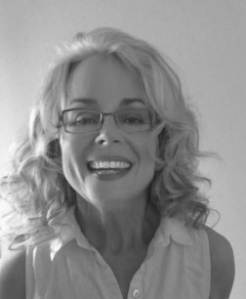Communities of Color Should Not Need to Protest
by Debbie Allen, FUSE Corps Executive Fellow
This article is 4 years old. It was published on June 2, 2020.
Say his name. George Floyd.” It does not matter what led to his arrest. The response was horrific, and yet, sadly, a common occurrence deeply rooted in our history.
We must also say their names: Ahmaud Arbery. Sandra Bland. Michael Brown, Jr. Philando Castile. Marquette Frye. Eric Garner. Atatiana Jefferson. Trayvon Martin. Renisha McBride. Tony McDade. Tamir Rice. Alton Sterling. Breonna Taylor. Countless More.
“The cumulative impact of racism can be devastating and overwhelming for black, brown, and multi-racial families”, according to a letter issued by the Carolina Friends School.
As we reflect, we must also “closely examine the layers of systemic racism and inequality laid bare over these past few months as we see communities of color most negatively impacted by the soaring unemployment rate, [unmet physical and behavioral health needs], COVID-19 infections and deaths, and the occupations declared essential and thus most dangerous for workers. This is a prime opportunity for collective reflection that moves us to fundamentally shift our society toward justice, equity, and inclusion,” according to the letter.
Communities of color should not need to protest.
Our nation must reconcile that change goes well beyond any police response, or any one agency. No one agency is the problem, nor the solution. We need to understand how individual acts of racism, is a reflection of systemic acts of racism.
Our public policies, institutional practices, cultural representations, laws and the allocation of investments including resources, treatments and services into our communities must be addressed, now. These frameworks must be addressed through an equity lens along the lines of race, gender, geography, and socio-economic status if we are to change.
Our constituents do not demand perfection or quick fixes. That is what got us into this complex maze we are in now – demanding silver bullets to the complicated problems of what to do about the over-reliance on the justice system to solve every social challenge, as well as the overrepresentation of minorities and the mentally ill and substance use dependent individuals in the system.
We must remain deeply committed to addressing the disparities that exist amongst the region’s diverse communities and be committed to doing so through a collaborative governance structure. This builds trust between the government and the communities that they serve.
The City of St. Louis is not perfect. Far from it. But it knows what needs to happen and has taken action to make it happen here: our City leaders are coming together to create systemic criminal justice and public health change to meet this moment.
On May 13, 2020, the City of St. Louis took a monumental step forward in criminal justice and public health reform with the formalization of its Criminal Justice Coordinating Council (CJCC) with the execution of its Intergovernmental Cooperative Agreement. This governance structure allows state and local agencies to come together to pinpoint the gaps and needs of the whole criminal justice system and the individuals served in ways not possible before.
It was Mayor Lyda Krewson’s vision in 2018 to create this framework, representing the various agencies, disciplines and levels of government so that they could formulate a unified vision and mission that can then be executed in a coordinated, cohesive and expedient manner. This framework would examine the existing and proposed policies and practices of the local criminal justice system through an equity lens.
And, in fact, the CJCC was the first and only such coalition codified by law in the state and regionally, when the City of St. Louis Board of Aldermen passed Ordinance 71012 and the Mayor signed it into law in August 2019.
In October 2018, Debbie Allen, Executive Advisor to the Mayor and Interim Executive Director of the City's CJCC, came to the City to execute Mayor Krewson’s vision by establishing and institutionalizing a CJCC and the frameworks it represents. The CJCC has been working toward creating a fair and equitable criminal justice and public health system in incremental, sustainable ways. To learn more visit: www.stlouis-mo.gov/cjcc/.
The success of these strategies requires planning and coordination from everyone with a focus on systemic change through an equity and inclusive governance framework.
Special acknowledgment to the Carolina Friends School, Durham, North Carolina & Janeen Gingrich, Marquis-Duggan Non-Profit Solutions, Durham, North Carolina, whose own writings inspired portions of this article.
About the Author
 Debbie Allen is a FUSE Corps Executive Fellow. FUSE fellows are embedded with local government agencies, working alongside civic leaders to bring new approaches, diverse perspectives, and community-based solutions. Fellows are experienced professionals who can tackle complex challenges that require creative problem-solving in partnership with a wide array of cross-sector stakeholders.
Debbie Allen is a FUSE Corps Executive Fellow. FUSE fellows are embedded with local government agencies, working alongside civic leaders to bring new approaches, diverse perspectives, and community-based solutions. Fellows are experienced professionals who can tackle complex challenges that require creative problem-solving in partnership with a wide array of cross-sector stakeholders.
Ms. Allen serves as the Executive Advisor to the Mayor and Interim Executive Director for the City of St. Louis’ Criminal Justice Coordinating Council. She has worked for local and state government agencies in a variety of capacities for nearly 25 years addressing criminal justice and public health reform. Ms. Allen is a change agent helping others to see and embrace a shared vision.
-
Department:
Office of the Mayor
-
Topic:
Courts and Justice System
Equality
Most Read News
- St. Louis Workforce Development Board Introduces Local Plan for Program Years 2024-2027 The SLWDB Local Plan will be available for review for 21 days from the date of this notice
- test news page this is only a test
- Introducing Our 2022-2023 Annual Report Explore our latest Annual Report, showcasing a year of remarkable achievements and the tangible difference we've made in our community.